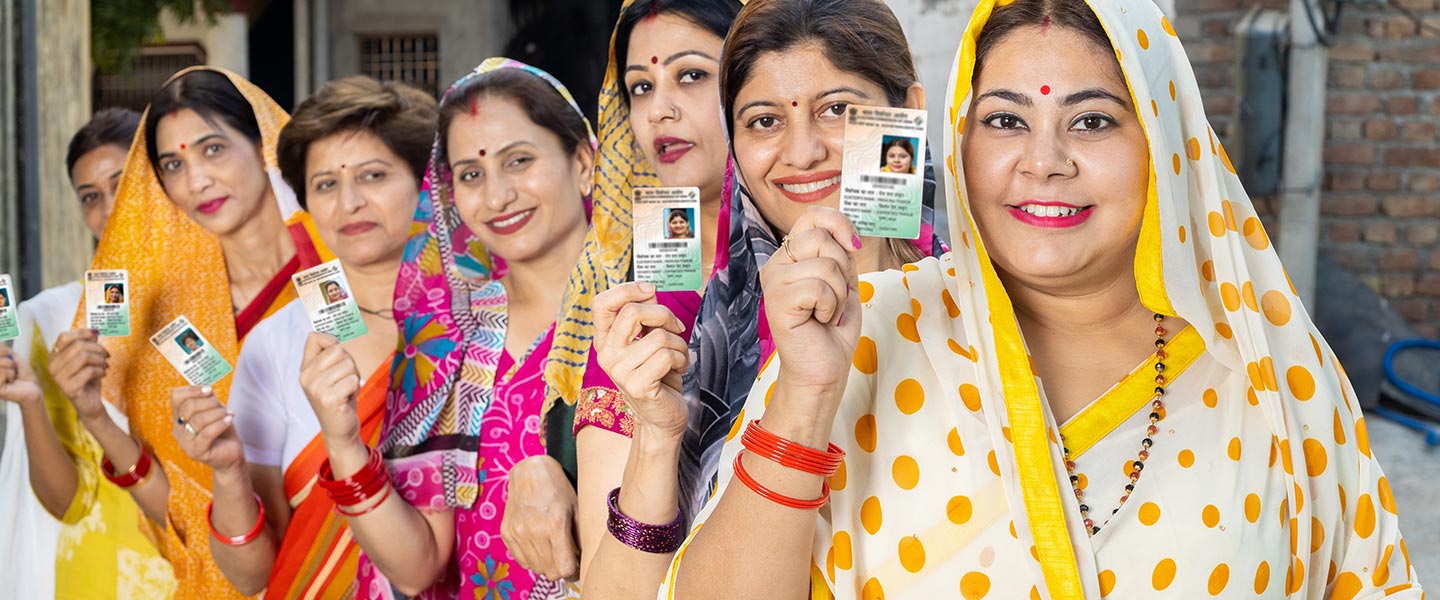-
Digital Natives
Unlock growth with Grant Thornton Bharat's Digital Natives solutions. Customised support for tech-driven…
-
Business Consulting
Our business consulting specialists offer a comprehensive blend of strategic advisory services. We…
-
Digital Transformation Services
Grant Thornton’s digital transformation services help traditional businesses digitalise…
-
Human Capital Consulting
Our Human Capital Consulting team harnesses technology and industry expertise to assist in constructing…
-
Production Linked Incentive Scheme
Production-linked Incentive Scheme by the Indian government is aimed at boosting manufacturing. Grant…
-
Public Sector Advisory
Our Public Sector Advisory team has focused streams, aligned with the core priorities of the Government…
-
Tech Advisory
We have amalgamated Digital Transformation, IT Advisory & Information Management and…
-
Direct Tax services
Our tax specialists offer a comprehensive blend of tax services, tax litigation, regulatory and compliance services, helping you navigate through complex…
-
Indirect Tax Services
Get tax services by leading tax firm Grant Thornton India. Our indirect tax services include consulting, compliance and litigation services for corporate, international and…
-
Transfer pricing services
Our transfer pricing services experts provide a range of services from provision of APA services to handling large global assignments including Country by Country…
-
US Tax
At Grant Thornton, we help individuals and dynamic companies deal with US tax laws, which are one of the most complicated tax legislations across the world.
-
Financial Services - Tax
Best financial advisory services, tailored for small and large businesses by the experts having comprehensive knowledge of domestic laws and access to multifaceted…
-
Financial Reporting consulting services
Our experts have significant hands-on experience in providing IFRS/US GAAP services, end-to-end solutions and support services to fulfil financial reporting requirements.
-
Fund accounting and financial reporting
International operations often lack standardisation and have varied local reporting formats and requirements. Our experts can offer proactive insights, practical…
-
Compliance and Secretarial Services
Our experts can assist in overhauling the entire compliance machinery of the organisation through evaluation of the applicable statutory obligations,…
-
Global People Solutions
As businesses transcend borders, both domestic and global considerations need equal attention. Our interim CFO and financial controller support services help…
-
Finance and accounting outsourcing
Our accounting experts assist organisations in managing their accounting and reporting. Our dedicated Integrated Knowledge and Capability Centre (IKCC), allows us to…
-
Compliance Management System
We have automation solutions for you that will allow meeting government requirements and remain diligent, which when failed, can lead to penalties and loss in…
-
IKCC: Grant Thornton's Shared Service Centre
The India Knowledge and Capability Centre (IKCC), aimed at delivering solutions by developing capabilities, has completed four years of its journey.
-
Global compliance and reporting solutions
At Grant Thornton Bharat, we meet the challenges of our clients and help them unlock their potential for growth. Our professionals offer solutions tailored to meet our…
-
Related Party Transactions Governance
Grant Thornton Bharat's comprehensive related-party transaction services ensure good governance by adhering to regulatory requirements, promoting transparency,…
-
Family Offices & Private Client Services
Grant Thornton Bharat Private Client Services offers tailored advisory for family-owned businesses, focusing on governance, compliance, tax, succession planning, and…
-
GTMitra: Tax & Regulatory Tool
GTMitra, a specialised tax and regulatory tool by Grant Thornton Bharat, supports multinational businesses in understanding laws and regulations for effective growth…
-
Labour codes
Labour codes solutions help you transition through the new legislation. At Grant Thornton, we help businesses divide their approach to make sure a smooth transition.
-
Alerts
At Grant Thornton India, with the help of our tax alerts, we help to provide updates on how to minimise your tax exposure and risks.
-
Unlocking opportunities: India investment roadmap
The India Investment Roadmap resource is designed to navigate the complexities of Indian tax and regulatory laws, providing seamless guidance and a…

-
Cyber
In today’s time, businesses have gone through large transformation initiatives such as adoption of digital technologies, transition to cloud, use of advanced…
-
Governance, Risk & Operations
Our Governance, Risk and Operations (GRO) services encompass Internal Audit, Enterprise Risk Management, Internal Financial Controls, IT advisory, Standard…
-
Risk analytics
Grant Thornton Bharat’s CLEARR Insights is a state-of-the art data analytics platform that will help you in seamless data analysis and efficient decision-making.
-
Forensic & Investigation Services
The team of forensic advisory services experts consists of the best intelligence corporate experts, and fraud risk, computer forensic experts to deliver most effective…
-
ESG consulting
Grant Thornton Bharat offers holistic ESG consulting solutions for sustainable business outcomes. With industry expertise and AI technology, we drive long-term value.

-
Transaction Tax Services
Our transaction tax experts understand your business, anticipate your needs and come up with…
-
Deal Advisory
Unlike other M&A advisory firm in India, we offer deal advisory services and work exclusively with…
-
Due Diligence
Grant Thornton’s financial due diligence services are aimed at corporate looking for mergers and…
-
Valuations
As one of the leading valuation consultants in India, Grant Thornton specializes in all the aspects of the…
-
Overseas Listing
Overseas listing presents a perfect platform for mid-sized Indian companies with global ambitions.…
-
Debt & Special Situations Solutions
Grant Thornton Bharat offers specialist debt and special situations consulting services, including…
-
Financial Reporting Advisory Services
Grant Thornton Bharat Financial Reporting Advisory Services offer end-to-end solutions for complex financial requirements, including GAAP conversions, IPO support,…
-
Financial Statement Audit and Attestation Services
Grant Thornton Bharat offers customised financial statement audit and attestation services, ensuring impeccable quality and compliance with global…

- Agriculture
- Asset management
- Automotive and EV
- Aviation
- Banking
- Education and ed-tech
- Energy & Renewables
- Engineering & industrial products
- FinTech
- FMCG & consumer goods
- Food processing
- Gaming
- Healthcare
- Urban infrastructure
- Insurance
- Media
- Medical devices
- Metals & Mining
- NBFC
- Pharma, bio tech & life sciences
- Real estate and REITs
- Retail & E-commerce
- Specialty chemicals
- Sports
- Technology
- Telecom
- Transportation & logistics
- Tourism & hospitality
-
 Thought leadership Co-lending in India: Expanding credit access for MSMEsIn today’s rapidly evolving financial landscape, co-lending has emerged as a key enabler of credit expansion in India, facilitating partnerships between banks and non-banking financial companies (NBFCs) to extend credit more efficiently to underserved segments.
Thought leadership Co-lending in India: Expanding credit access for MSMEsIn today’s rapidly evolving financial landscape, co-lending has emerged as a key enabler of credit expansion in India, facilitating partnerships between banks and non-banking financial companies (NBFCs) to extend credit more efficiently to underserved segments. -
 Article Why India’s financial inclusion journey needs to focus on equity and access to creditFinancial services have expanded over a decade, giving millions access to bank accounts and digital payments. But true empowerment needs to reach every corner of the country if growth is to be long-term and sustained
Article Why India’s financial inclusion journey needs to focus on equity and access to creditFinancial services have expanded over a decade, giving millions access to bank accounts and digital payments. But true empowerment needs to reach every corner of the country if growth is to be long-term and sustained -
 Thought Leadership Competitive and sustainable agriculture & food processing in KeralaThe economy of Kerala is primarily driven by the services sector, which contributes 66% to the Gross State Domestic Product (GSDP).
Thought Leadership Competitive and sustainable agriculture & food processing in KeralaThe economy of Kerala is primarily driven by the services sector, which contributes 66% to the Gross State Domestic Product (GSDP). -
 Article Economic Survey 2024-25: Deregulation, investment and innovation for a Viksit BharatIndia's economic growth remains for a steady trajectory with real GDP expected to grow at 6.4% in FY25 and in the range of 6.3%-6.8% in FY26, reflecting resilience despite global uncertainties.
Article Economic Survey 2024-25: Deregulation, investment and innovation for a Viksit BharatIndia's economic growth remains for a steady trajectory with real GDP expected to grow at 6.4% in FY25 and in the range of 6.3%-6.8% in FY26, reflecting resilience despite global uncertainties.
-
India-UK
India-UK

The Election Commission of India (ECI) voiced its concern over the environmental risks associated with the use of non-biodegradable materials in elections. It has been urging parties and candidates to avoid the use of plastic or polythene for the preparation of election material during election campaign since 1999.
During the 2024 general elections, the Anandpur Sahib parliamentary constituency in Punjab is trying to create a model of green elections in the country. The constituency, located in Rupnagar (formerly Ropar), aims to turn the ECI’s slogan of holding 'Green Elections' into reality on the ground. To neutralise the carbon content generated during the election process, efforts are being made to plant the maximum number of trees and ensure the minimum use of plastic during the training, dispatch, and collection of EVMs by polling teams and at counting centres. In line with the ECI's concept of 'Green Elections', our slogan is to promote a free, fair, transparent, and environmentally friendly election process. To achieve this, political parties and candidates should be encouraged not to use single-use plastic, and government staff involved in election arrangements should be asked to participate in and act as ambassadors of this 'Green Election' campaign to further spread the initiative.
Green elections are practices that aim to reduce the environmental impact of electoral processes. They involve measures such as using recycled materials, promoting electronic voting, and encouraging candidates to adopt sustainable campaign practices.
Green elections aim to minimise the environmental impact of electoral processes by allowing candidates and parties to adopt sustainable alternatives such as recycled paper, biodegradable banners, and reusable materials. Opting for energy-efficient lighting, sound systems, and transportation during rallies can help reduce the carbon footprint. Leveraging digital platforms for campaigning (websites, social media, and email) reduces paper usage and energy consumption.
During the 2019 general election, the Kerala State Election Commission took a proactive step by urging political parties to avoid single-use plastic materials during their campaigns. Single-use plastic is a disposable material that can be used only once before it is either thrown away or recycled, like plastic bags, water bottles, soda bottles, straws, plastic plates, cups, most food packaging, and coffee stirrers. Subsequently, the Kerala High Court imposed a ban on flex and non-biodegradable materials in electioneering. As an alternative, wall graffiti and paper posters emerged, promoting a more sustainable approach. Additionally, government bodies collaborated with the district administration in Thiruvananthapuram to ensure a green election, emphasising eco-friendly practices. Training sessions were also conducted in villages for election workers to raise awareness and promote environmentally conscious behaviour.
Similarly, in 2022, the Goa State Biodiversity Board took a significant step by introducing eco-friendly election booths for the Assembly elections. These booths were constructed using biodegradable materials meticulously crafted by local traditional artisans from Sattari and Ponda. Not only are these materials environmentally friendly, but they also support local artisans.
Globally, Estonia laid the foundations for digital voting as an alternative to traditional paper-based methods. Their approach encouraged voter participation while significantly reducing the environmental impact. These examples demonstrate that prioritising environmental considerations in electoral processes can set an example for other nations and contribute to a more sustainable future. By implementing robust security measures, Estonia demonstrated that digital voting can be both eco-friendly and electorate friendly. The success of this approach suggests that other democracies can follow suit. These examples demonstrate that prioritising environmental considerations in electoral processes can set an example for other nations and contribute to a more sustainable future.
Traditional election processes have significant environmental consequences due to various factors, such as the emissions from campaign flights during elections, which contribute significantly to the overall carbon footprint. For example, in the 2016 US presidential elections, the emissions from just one candidate’s campaign flights were equivalent to the annual carbon footprint of 500 Americans.
Reliance on paper-based materials for ballots, campaign literature, and administrative documents leads to deforestation and energy-intensive production processes. Large-scale election rallies with loudspeakers, lighting, and other energy-consuming equipment contribute to energy consumption and emissions. PVC flex banners, hoardings, and disposable items used during campaigns add to waste generation and environmental impact.
Ensuring that all voters have fair access to new technologies is crucial. However, this requires substantial efforts in terms of training election officials and educating voters about the new systems. Election officials need to be proficient in operating and troubleshooting the new technology. Adequate training programmes are essential to bridging the knowledge gap. Ensuring that all voters, including those in remote or underserved areas, can access and use the technology is a challenge. Addressing disparities in internet connectivity and digital literacy is vital. Implementing eco-friendly materials and advanced technology often comes with significant upfront costs. Governments, especially those with limited budgets, may hesitate due to financial constraints. Allocating funds for technology upgrades while balancing other essential services is a delicate task. Prioritising modernisation within budget limitations is challenging. Although initial costs may be high, emphasising the long-term benefits (such as reduced paper usage and streamlined processes) can help justify the investment.
Traditionally, voting has been associated with a physical presence at polling booths. Overcoming cultural inertia and changing voter behaviour is essential for successful modernisation. Many voters view physically going to the polls as a sacred civic duty. Convincing them that digital alternatives are equally valid can be challenging. Building trust in electronic voting systems is critical. Public scepticism about security, privacy, and potential manipulation must be addressed through transparency and robust safeguards. Introducing new approaches, such as online voting or blockchain-based systems, raises concerns about vote security. Ensuring that voting systems are secure from cyber threats is paramount. Any compromise could undermine public trust and the integrity of elections. Striking the right balance between robust security measures and user-friendly interfaces is a challenge. Rigorous security protocols should not hinder ease of use.
This green transition must involve all stakeholders, such as political parties, election commissions, governments, voters, the media, and civil society. The success of integrating top-level directives with grassroots initiatives to foster a green transition is imperative. Political parties must take the lead. The journey can begin by enacting legislation mandating eco-friendly electoral practices, with the ECI incorporating them in the Model Code of Conduct. This involves campaigning through digital platforms or door-to-door campaigning (reducing energy-intensive public rallies) and encouraging the use of public transportation for election work. Incentivising the replacement of plastic and paper-based materials with sustainable local alternatives for polling booths, such as natural fabrics, recycled paper, and compostable plastics, will aid waste management and support local artisans. The ECI can push for digital voting even though this necessitates the training and capacity-building of officials. To ensure equal participation of all voters in the digital electoral process, the government must educate and support voters and ensure equitable access to digital technology.
This article first appeared in Hindustan Times on 25 May 2024.

